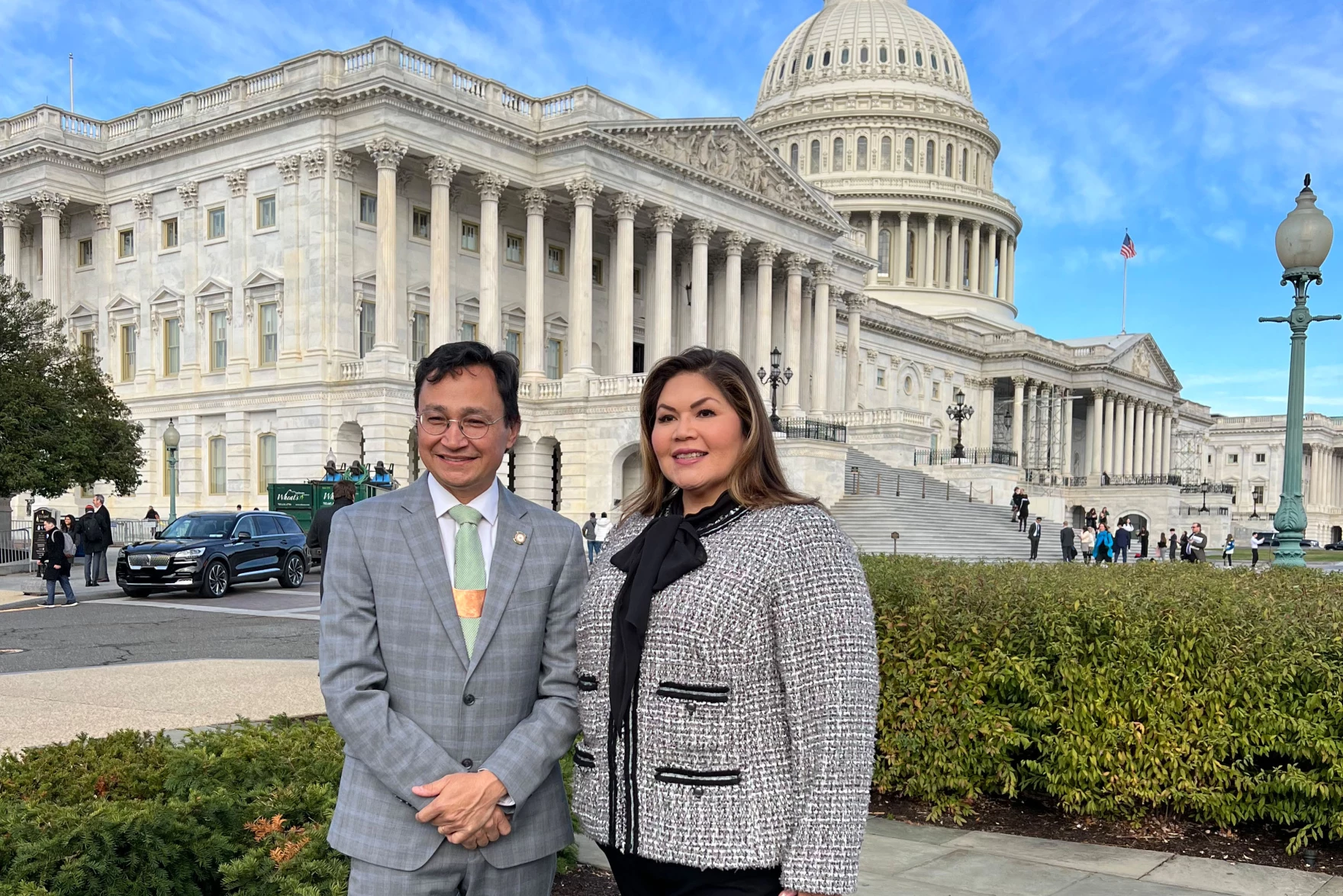
- Details
- By Native News Online Staff
While not able to get the Cherokee Nation delegate, Kim Teehee, seated by the end of the 117th Congress, the House Rules Committee Chairman Jim McGovern (D-MA) and Ranking Member Tom Cole (R-OK) committed to continuing their work next year to seat the delegate that the Cherokee Nation was promised in the 1835 Treaty of New Echota.
Cherokee Nation Principal Chief Chuck Hoskin, Jr. expressed his gratitude for work of the committee thus far.
“We are grateful that Chairman McGovern and Ranking Member Cole reiterated their commitment today to work across the aisle to seat the Cherokee Nation’s delegate in the U.S. House. This is not a partisan issue. This is an issue about whether the United States will keep its word, and we look forward to working with the new Republican majority next month to ensure that it does so.” Hoskin said in a statement.
On Nov. 16, the House Rules Committee held a hearing on legal and procedural factors in seating a Cherokee Nation Delegate.
“We have made historic progress this year. Last month, the House Rules Committee held its first-ever hearing on seating the Cherokee Nation’s delegate. We are overwhelmed by the support we heard then from members of both parties, just as we are overwhelmed by the outpouring of support this effort has received from Cherokee citizens and supporters across this country. We are on the right track, and we remain confident that the House will soon seat our delegate-designee, Kim Teehee, as the Treaty of New Echota stipulates,” Hoskin continued.
RELATED: Cherokee Nation’s Delegate to Congress is 187 Years Overdue
During the hearing last month, McGovern expressed his commitment to fulfill the treaty obligations. He reiterated his commitment on Thursday in the following statement:
“Though a complicated issue, I personally believe that we need to find a way to honor our treaty obligations with the Cherokee and seat a delegate in the House and I'm committed to working to make that happen in the next Congress. And I appreciate the members of this committee, especially my Ranking Member, for agreeing to look at this issue seriously and try to find a way forward.”
With the Republicans in majority in the upcoming Congress, which session begins on January 3, 2022, McGovern will no longer serve as chair of the committee. In all probability, Rep. Tom Cole, who is a tribal citizen of the Chickasaw Nation, will assume the position as chair of the committee.
“I don't regard tribal issues as Democrat or Republican. They really are exceptionally bipartisan and they really get down to tribal sovereignty and the Federal…responsibility, the importance of maintaining our treaty obligations,” Cole said at the Nov. 16 hearing.
More Stories Like This
NCAI Passes Two Emergency Resolutions on Immigration Enforcement ActivitiesChickasaw Lighthorse Police Officer named Indian Country Law Enforcement Officer of the Year
Indian Gaming Association Rallies Broad Coalition Against Sports Event Contracts It Calls Illegal Threat to Tribal Sovereignty
Navajo Resources and Development Committee Issues Notice on Livestock Inspection Requirements
American Prairie, Tribal Coalition Files Protest Over Rescinded Grazing Rights
Help us defend tribal sovereignty.
At Native News Online, our mission is rooted in telling the stories that strengthen sovereignty and uplift Indigenous voices — not just at year’s end, but every single day.
Because of your generosity last year, we were able to keep our reporters on the ground in tribal communities, at national gatherings and in the halls of Congress — covering the issues that matter most to Indian Country: sovereignty, culture, education, health and economic opportunity.
That support sustained us through a tough year in 2025. Now, as we look to the year ahead, we need your help right now to ensure warrior journalism remains strong — reporting that defends tribal sovereignty, amplifies Native truth, and holds power accountable.
 The stakes couldn't be higher. Your support keeps Native voices heard, Native stories told and Native sovereignty defended.
The stakes couldn't be higher. Your support keeps Native voices heard, Native stories told and Native sovereignty defended.
Stand with Warrior Journalism today.
Levi Rickert (Potawatomi), Editor & Publisher


